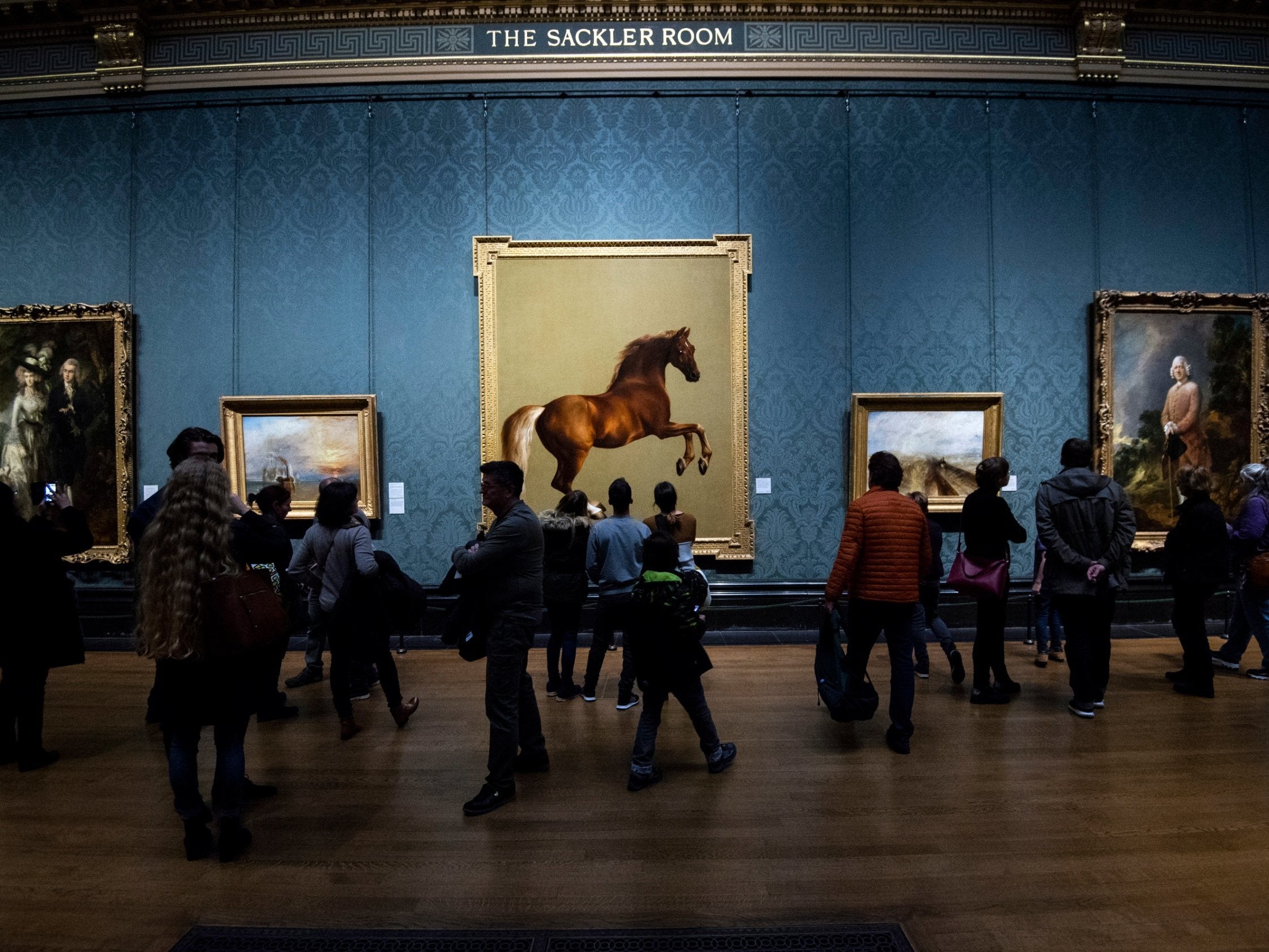Sackler Trust suspends all new donations as opioid crisis backlash grows
Family behind controversial painkiller OxyContin pauses philanthropy as it faces hundreds of court cases

Your support helps us to tell the story
From reproductive rights to climate change to Big Tech, The Independent is on the ground when the story is developing. Whether it's investigating the financials of Elon Musk's pro-Trump PAC or producing our latest documentary, 'The A Word', which shines a light on the American women fighting for reproductive rights, we know how important it is to parse out the facts from the messaging.
At such a critical moment in US history, we need reporters on the ground. Your donation allows us to keep sending journalists to speak to both sides of the story.
The Independent is trusted by Americans across the entire political spectrum. And unlike many other quality news outlets, we choose not to lock Americans out of our reporting and analysis with paywalls. We believe quality journalism should be available to everyone, paid for by those who can afford it.
Your support makes all the difference.The Sackler Trust – which gives money to charity on behalf of the American family behind controversial painkiller OxyContin – has paused all new donations in the UK amid an opioid crisis.
Members of the billionaire Sackler family own Purdue Pharma, which markets the drug. Through their family trust they have donated millions of dollars to healthcare, education and the arts in the UK.
But the trust has faced a string of court cases and an intensifying backlash over OxyContin’s alleged role in an addiction epidemic that has claimed hundreds of thousands of lives.
The Sackler Trust said all philanthropic giving will be suspended so that the issue “will not be a distraction for institutions that are applying for grants”. Commitments that have already been made will be honoured.
Earlier this month, the National Portrait Gallery cancelled a £1m donation from the Sackler Trust. It was quickly followed by the Tate, which has accepted gifts from the Sacklers in the past but said last week that it would not do so in future.
On Monday, the Prince’s Trust became the latest organisation to shun Sackler money.
Sackler Trust chair Dame Theresa Sackler said: “I am deeply saddened by the addiction crisis in America and support the actions Purdue Pharma is taking to help tackle the situation, whilst still rejecting the false allegations made against the company and several members of the Sackler family.
“The current press attention that these legal cases in the United States is generating has created immense pressure on the scientific, medical, educational and arts institutions here in the UK, large and small, that I am so proud to support.
“This attention is distracting them from the important work that they do.
“The trustees of the Sackler Trust have taken the difficult decision to temporarily pause all new philanthropic giving, while still honouring existing commitments.
“I remain fully committed to all the causes the Sackler Trust supports, but at this moment it is the better course for the trust to halt all new giving until we can be confident that it will not be a distraction for institutions that are applying for grants.”
Since 2010, the Sackler Trust claims to have donated more than £60m in the UK.
OxyContin is an opioid that is chemically similar to morphine and diamorphine (heroin). It was released in 1996 and marketed by Purdue as a time-released capsule that presented little risk of becoming addictive.
However, lawsuits against Purdue allege that the company knew this was not true. Millions of people in the US have abused the drug and a significant proportion have moved to heroin.
Opioids were involved in 48,000 deaths in the US in 2017, according to official figures. Purdue denies wrongdoing and has said that its products were approved by US regulators and prescribed by doctors.
Join our commenting forum
Join thought-provoking conversations, follow other Independent readers and see their replies
Comments